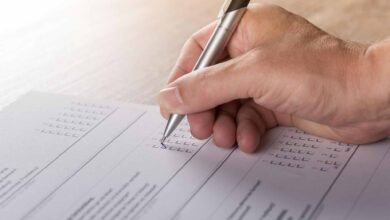A book report is a standard assignment for students to demonstrate their understanding and analysis of a book they have read. Although book report requirements vary, most book reports contain common elements that provide a broad overview and critique of the book. In a comprehensive book report, elements such as a succinct summary of the plot, insightful analysis of characters and themes, and personal reflections on the reading experience are essential; the option to write me a book report provides a convenient solution to articulate these elements cohesively. A well-written book report should not just summarize the plot, but should analyze the book’s strengths, weaknesses, style, themes, characters, and significance.
Table of Contents
Identifying the Key Details
The first step in any successful book report is to clearly identify the key details about the book. This helps orient the reader by providing vital background context right up front. Be sure to include:
- The full title and subtitle (if any)
- The author’s name
- The genre (fiction, nonfiction, biography, autobiography, etc.)
- Publisher and publication date
- For nonfiction books, the overall topic, scope, or subject area
Providing these basics helps the reader understand the type of book being reviewed. For example, noting that the book is historical fiction set during World War II vs. a contemporary romance novel provides insight into the tone and content of the book.
Some other helpful identifying info can include:
- The setting (time period, location, relevant historical context)
- If part of a series, which book in the series
- Awards the book has received
- Brief background on the author’s qualifications if relevant
The goal is to orient the reader efficiently, not overwhelm with trivial details. Focus on the most revealing and useful basics at the start.
Writing a Thorough Summary
A well-constructed book report encompasses a thorough summary, thoughtful analysis of characters and themes, and personal reflections on the reading experience; for insights into the quality of academic support services, considering an Academized review can offer valuable perspectives on approaching and excelling in the creation of a comprehensive book report.
After identifying the book, the next core piece of a book report is providing a thorough yet concise summary of the contents. The summary overview should inform the reader of the major characters, plot points, events, and ideas covered in the book, without giving away all the intricacies or the ending. Assume the reader has not actually read the book yet.
For fiction book summaries, aim to cover:
- The setting(s) and time period
- The main characters and their roles
- The central conflict, issue, or challenge the characters face
- The key plot points, turning points, and story arcs without spoiling the resolution
- The climax and any twists near the end
- How the book concludes – the resolution and ending
For nonfiction books, summaries should include:
- The overall topic, scope, and goals of the book
- The main themes, arguments, or ideas the author discusses
- How the book is organized and structured
- Any major studies, interviews, data, or evidence included
- The author’s conclusions, proposed solutions, and final thoughts
The summary section should provide enough detail to understand the essence of the book without becoming long-winded or detailing every single chapter. Be thorough but concise in encapsulating the heart of the book.
Adding Critical Analysis and Commentary
The most valuable part of any book report is providing your own insightful analysis and commentary about the book. This demonstrates you have read closely and thought critically about what you read, not just summarized it.
Some key elements to address in your critique:
Discussing the Author’s Writing Style
What is the author’s writing style like? Is it sophisticated, witty, academic, conversational, funny, formal, inflammatory? Why do you think the author writes this way? How does the style contribute or detract from the book’s overall effectiveness and readability?
Assessing Strengths and Weaknesses
Objectively discuss areas where you felt the book was especially strong and insightful. Perhaps compelling characters, suspenseful plot twists, eloquent prose, thorough research, or thought-provoking arguments. Also point out any major weaknesses—inconsistent tone, slow pacing, undeveloped characters, logical gaps, missed opportunities, etc. Be constructive in your critiques.
Personal Response and Recommendation
How did this book make you feel as you read it? Bored? Angry? Amused? Challenged? Why? Would you recommend this book to others? What kind of reader is most likely to appreciate or dislike this book? Give your personal recommendation based on your experience reading the book.
Evaluating Significance and Importance
Why is this book important? Does it provide new perspectives, challenge accepted beliefs, reveal little known facts, shape public opinion? How does it compare with other books on this topic—more/less insightful or groundbreaking? Has it withstood the test of time or grown outdated? Assess the lasting significance and importance of the book.
Assessing Credibility of Sources (For Nonfiction)
For nonfiction books that make arguments based on facts, data, interviews, etc., assess how credible and reliable the author’s sources appear to be. Does the author back up claims with evidence from reputable experts and sources? Does the author seem to evaluate information objectively? Are counterarguments addressed fairly? Point out any flaws or weaknesses in credibility.
Analyzing Literary Components (For Fiction)
For fiction, analyze how key components like character development, tone, imagery, symbolism, setting details, plot structure, theme, etc. create a meaningful story. Point out especially effective or creative literary techniques. But also note where devices seem clichéd or ineffective. Discuss how the components come together to build an impactful narrative.
Ending With a Strong Conclusion
Wrap up your book report with a brief concluding paragraph that restates your overall assessment of the book. Summarize your key perspectives on strengths, weaknesses, style, effectiveness, and significance. Would you recommend this book? To whom? How does it compare to other books on this topic? Leave the reader with your final thoughts regarding the importance and impact of the book.
An in-depth book report should demonstrate you did far more than just read—you analyzed, synthesized, and evaluated. Follow these guidelines to write a thoughtful, organized review that provides insight into both the book itself and your response as a reader. Vary your sentence structure. Aim for an objective tone even when stating opinions. And ensure your unique perspective and style shines through. Your book report should reflect the book while standing alone as an engaging piece of writing.
Please explore our site for more exciting content if you liked dis article.





